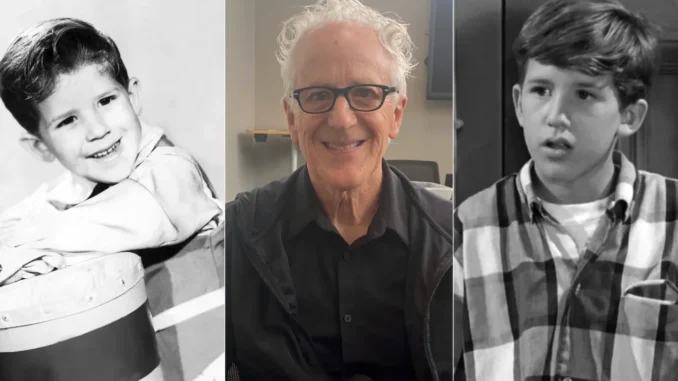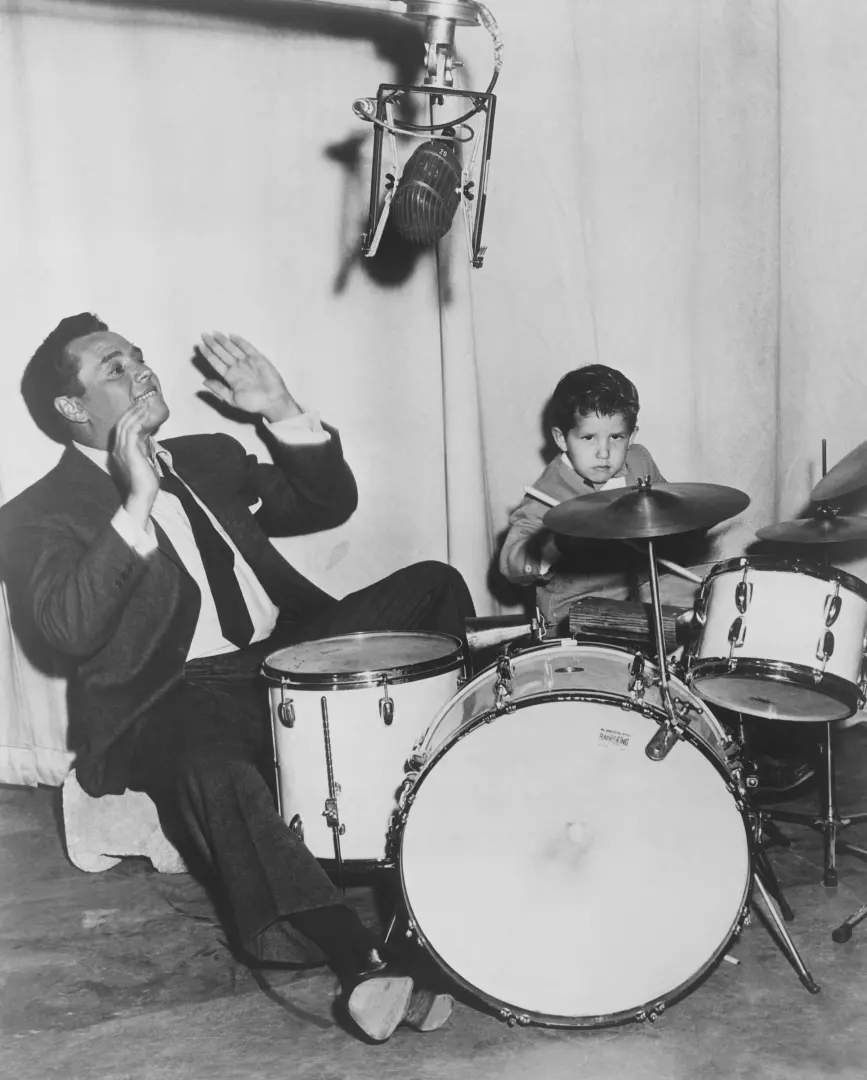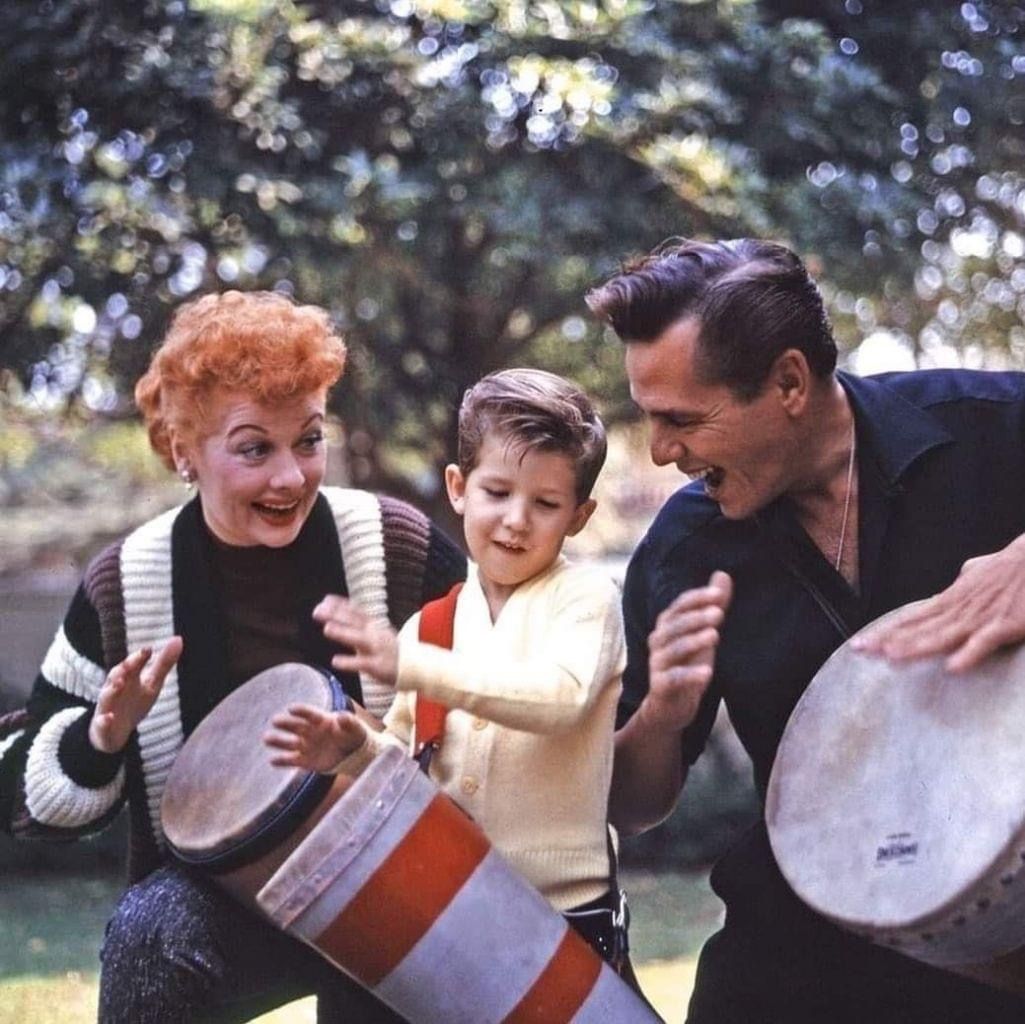
Keith Thibodeaux, best known as the talented child actor who portrayed Little Ricky on the iconic television show I Love Lucy, recently reflected on his remarkable journey from child stardom to a life defined by faith, resilience, and personal discovery. At 74, Thibodeaux’s story is one of triumphs and trials, offering a rare glimpse into the realities behind the glittering Hollywood screen and the personal evolution of a man who grew up in the public eye.
Born in New Orleans, Louisiana, Thibodeaux’s prodigious musical talent emerged early. He began performing professionally as a drummer before joining I Love Lucy at a young age, a role that would catapult him into the spotlight. Playing Little Ricky, the mischievous and adorable son of Ricky and Lucy Ricardo, Thibodeaux quickly became a household name. Audiences adored his timing, charm, and charisma, making him one of the most memorable child actors of the 1950s television era.
Despite the fame and adoration, Thibodeaux’s early career was not without challenges. Transitioning from childhood stardom to a normal adolescence proved difficult, as he grappled with the pressures of fame, public scrutiny, and the unique demands of Hollywood. Like many child actors, he faced the complex task of carving out an identity separate from the character that had defined him in the public imagination. Thibodeaux has spoken candidly about the struggles he experienced during this period, including moments of self-doubt and the search for purpose beyond acting.
Music remained a constant anchor in Thibodeaux’s life. Even as he navigated the highs and lows of show business, his drumming provided a creative outlet and a sense of grounding. After I Love Lucy, he joined the popular rock band David and the Giants, a move that allowed him to continue performing while exploring new musical styles and opportunities. This chapter of his life marked a departure from the child actor persona, highlighting his versatility and deep passion for the arts.
Faith also played a pivotal role in Thibodeaux’s journey. Later in life, he embraced Christianity, finding solace, purpose, and guidance in his beliefs. His faith became a cornerstone of his personal development, helping him navigate challenges, heal from past struggles, and focus on meaningful contributions beyond entertainment. Thibodeaux often shares that his spiritual journey has been instrumental in shaping his perspective, emphasizing values like humility, perseverance, and service to others.

Throughout his career, Thibodeaux has reflected on the unique position he held as part of television history. I Love Lucy remains one of the most beloved and influential shows of all time, and his role as Little Ricky continues to resonate with audiences across generations. He expresses gratitude for the opportunities the show afforded him while acknowledging the sacrifices and pressures that accompanied early fame. The duality of privilege and challenge defines much of his narrative, offering lessons for aspiring performers and fans alike.
Beyond his professional accomplishments, Thibodeaux has cultivated a rich personal life. He has spoken openly about his family, relationships, and the importance of maintaining a balanced, grounded lifestyle despite the allure of Hollywood. His reflections underscore the idea that true fulfillment comes not solely from external success but from self-understanding, faith, and the nurturing of meaningful connections.
In interviews and memoirs, Thibodeaux often discusses the enduring legacy of his work. Little Ricky, though a character from decades ago, remains an emblem of innocence, humor, and charm in television history. Thibodeaux takes pride in knowing that his performances brought joy to countless viewers, inspiring laughter and affection across generations. At the same time, he is candid about the pressures of living up to such an iconic role, emphasizing the resilience required to thrive both during and after his early fame.
The actor’s journey is also a testament to adaptability and reinvention. From child star to professional musician, to devoted father and man of faith, Thibodeaux’s life illustrates the possibilities of transformation, even under the scrutiny of public attention. His narrative highlights the importance of embracing change, pursuing personal growth, and finding meaning beyond professional accolades.

Social media and fan communities continue to celebrate Thibodeaux’s contributions to entertainment. Nostalgic posts, fan art, and retrospectives of I Love Lucy often feature his memorable performances, reflecting the timeless appeal of his work. For many fans, he embodies a bridge between the golden era of television and contemporary audiences, a living link to a formative period in entertainment history.
Looking back, Thibodeaux credits perseverance, creativity, and faith for guiding him through the complexities of fame, family, and personal development. He encourages young performers and fans to prioritize self-awareness, resilience, and balance in their own journeys. His story demonstrates that while early success can open doors, true fulfillment and identity are cultivated through sustained effort, reflection, and a commitment to personal values.
In conclusion, Keith Thibodeaux’s life offers a compelling narrative of triumph, challenge, and growth. From his early days as Little Ricky on I Love Lucy to his later years marked by musical pursuits, faith, and introspection, Thibodeaux exemplifies the enduring power of talent, perseverance, and purpose. His reflections provide inspiration not only for those in entertainment but for anyone navigating the complexities of life, fame, and self-discovery.
At 74, Thibodeaux continues to engage with fans, share his experiences, and celebrate the enduring legacy of I Love Lucy. His story is a reminder that while fame can be fleeting, the lessons learned, the faith embraced, and the personal growth achieved can last a lifetime, leaving a mark that transcends both time and screen.